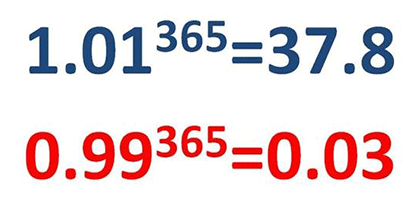
“Math is not for me!”
“All is well, except you know – math! Bleh!”
“I can’t cope with the speed at which they teach math. Formulas, questions, more theorems, more questions and it goes on before I can understand it!”
Heard these often? Math is a monster that menaces most high schoolers.
According to an educational study, about 40% of all 17-year-olds in the US lack math skills. This is not surprising! Time and again, in Gallup surveys, math has come out as the subject perceived by students as the most difficult amongst all others. But boldface the word ‘perceived’ in your mind as you read more facts about math education in the US:
- 60 percent of American students finish high school unprepared for college classes, compared to a much smaller number in other developed countries.
- The US ranked 42nd in a global comparison of math skills by country, placing below the global average by 20 points
Why is it that American scores in math fall way behind other countries and the world average? Honestly, it is because most U.S. high schools teach math differently than those in other countries.
“Classes often focus on formulas and procedures rather than teaching students to think creatively about solving complex problems involving all sorts of mathematics”, experts say. This approach makes it harder for students to compete globally, be it on an international exam or in colleges and careers that value sophisticated thinking and data science.
With the Covid-19 situation, things have gotten tougher with math all the more! There are many teachers who are not comfortable with teaching math online. On top of it, a lot of teachers have dismissed the idea of teaching online.
The good news is that there are still a lot of ways to strengthen your math skills without being entirely dependent on schools’ pedagogy. Get started with these best of tips brought to you by experts at Talentnook.com:
1. Don’t just practice. Also, play around!
You read it right! While every other person suggests that extensive practice is the master key to unlock your inner math genius, we beg to differ! Statistics show that the human brain is at its peak of ‘learnability’ when it is in the ‘fun’ or ‘play’ mode. So never believe that mastering math is proportional to the number of notebooks filled with practice questions. Instead, do this:
- Learn derivations of formulae and theorems to understand their usage better
- Play with problem-solving approaches. Try different methods (even shortcuts) to arrive at the correct answer (e.g.
- Use tables and diagrams to organize information and to see patterns
- Approach each question like a riddle or a puzzle and not as a complex math word problem – this shift in perception is everything, try it to believe it!
- Try your hand at making educated guesses and approximations
2. Take baby steps every day
1.01 raised to the power 365 is 37.8 and 0.99 raised to the power 365 is 0.03. Apply this mathematical lesson to your daily life! Increase your knowledge by just 1% every day, and in one year you’ll be 38X smarter.

The power of daily compounding
Do these little things daily and watch your prowess in math grow manifold:
- Analyze daily life problems mathematically (e.g. allegation questions are all around you – grab a bottle of lemon soda and a bottle of water, how much should you mix of each to get 10% lemon essence in the final mixture?)
- Solve random math puzzles (especially the ones not even remotely linked to your syllabus), slowly you will start seeing math as fun rather than a subject!
- Expand your learning horizons – make use of digital tools, online free tutorials, mock tests, and other resources like formula flashcards
- Be receptive to understanding the application of math in daily life (discounts are a great way to start appreciating the power of math! For example: would you benefit from a 20% discount or a 10% on 10% discount? Solve it to see why the counter-intuitive answer is right!)
- Avoid using a calculator, do mental math as much as possible to remove the fear of numbers in general (next challenge: you must sum up the bill at the grocery store faster than the cashier even after applying all discounts and offers!)
Also read: How Teaching is changing in a Post Pandemic society
3. Get a tutor’s help to create your winning formula
A tutor is more than a person who helps you get better grades temporarily. With a dedicated, professional tutor you can not only customize your learning journey according to your preferences and goals, but you can also develop habits like critical thinking and discipline.

To address the need of students struggling with math in the United States, we at Talentnook have launched a math program called ELITE. Dedicated to the mission of making you achieve higher scores and develop more confidence in math. Some key highlights of this booster course designed to help improve math skills for high school students:
- The program will help students get better at math. The program is in fact aimed at preparing them for not only good grades but also for Advanced placement exams (AP exams)
- Utilizes a holistic approach to teaching math and focuses on the development of critical thinking skills rather than cramming of formula cheat sheets
- Every student who enrolls in ELITE shall get a personal academic advisor / who will offer a highly personalized and effective learning program
- By utilizing the power of deep learning and continuous assessment, the program is designed to help students build confidence and a love for math. The idea is to take away the focus from hacking a method to score higher grades in the short-run (which anyways is a by-product of great confidence and personalized learning!)
The program guarantees satisfaction and success. Don’t believe us? You can simply sign up for a free trial!
Sign up for the Talentnook ELITE Math Program
4. Collaborate and Grow your Math skills
The best way to improve math skills for high school students is to collaborate! Join math forums online where you can discuss math questions, solve them for others, ask your doubts, and discuss general concepts. The discussions have moved online after all! This is the time to utilize the power of the internet, especially during the pandemic. Imagine discussing math with students from Switzerland, India, Australia, etc.

The learning could be immense if you utilize the power of discussions with other students. Some key benefits are:
- Learning alternate approaches by evaluating methods used by others,
- Getting access to free resources like practice sets
- Getting access to peer-to-peer discussions without any inhibitions.
Take the collaboration to a next level and try the following if you like:
- Working on joint math projects
- Participate in math contests online
- Level up and present your math ideas/ learnings to your friends or schoolmates in a newsletter! (e.g. a newsletter containing fun facts and uses of Pythagoras theorem! It will not only help others but will also massively motivate you to learn math at much deeper and yet in a fun way!)
- Step up by trying to ‘create’ math questions to activate creative and critical thinking at the same time. For example, send a mock test of 10 questions to your best friend and get them to send you one next week!
- Don’t Google, ask your tutor first, friends next, and books last. If your doubts still remain, then hop on to the search engine for answers. Spend enough time with a problem before looking out for a quick solution to replicate!
Ready to step up in the game of math? Signup to Talentnook and unlock access to experienced tutors offering personalized lessons aimed at improving math skills for high school students.